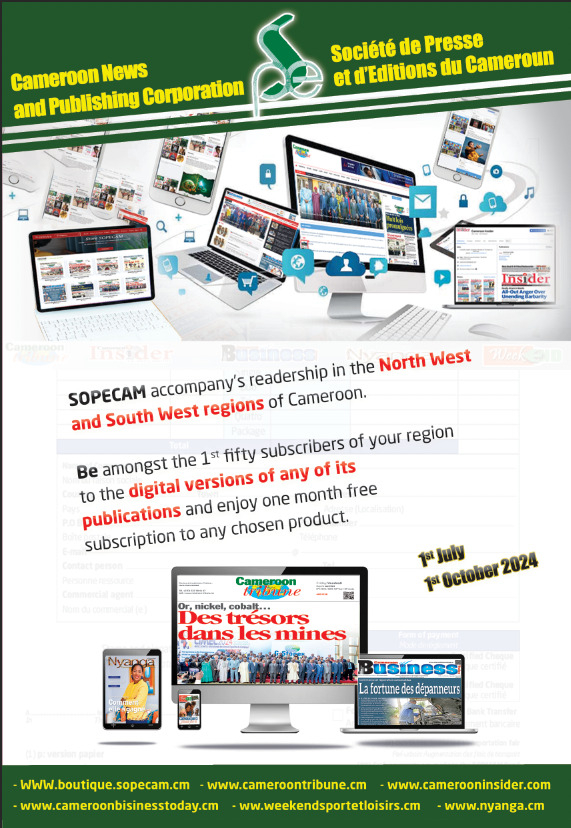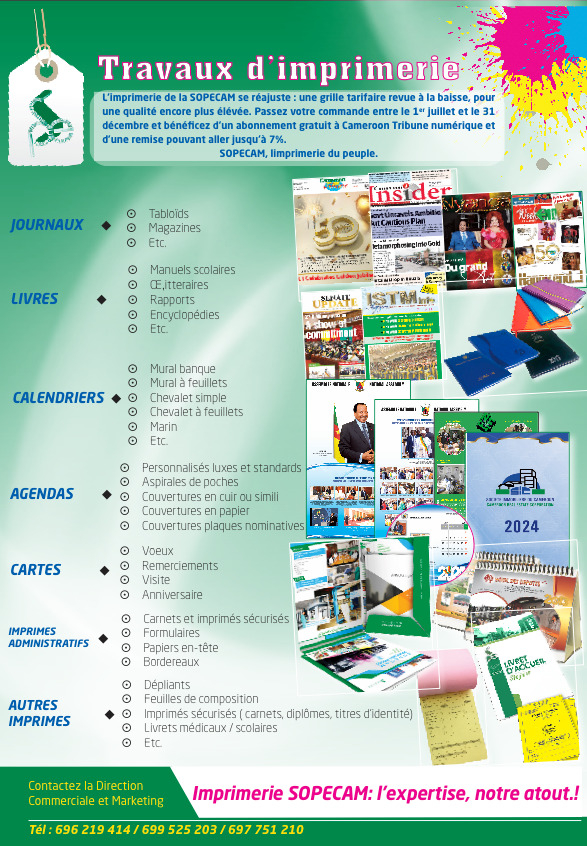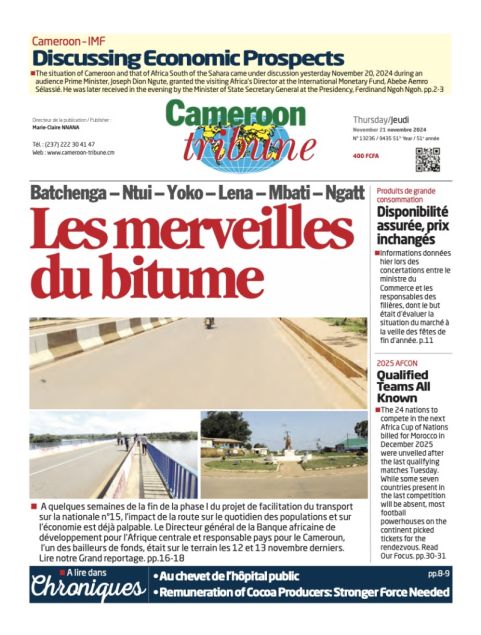Mass Urban Transport : Solving The Challenging Equation
- Par Godlove BAINKONG
- 25 avril 2024 08:56
- 0 Likes
News that a Swedish company is proposing bus services for Cameroon’s main cities: Yaounde and Douala, certainly raised anxiety in the inhabitants and people who visit the country’s political and economic capitals. For, one of the things that make life challenging therein is movement from one end to the other. City dwellers are left at the mercy of taxis and motorcycles whose capacity is too low to contain the number of people requiring the services.
In fact, mass transport remains a difficult equation to solve for Cameroon’s main metropolises, Yaounde and Douala, despite the many efforts made by both the public authorities and the decentralised local authorities to achieve this. Most of the structures set up for this purpose have not been able to fulfil the mission assigned to them and the helpless population are left with no option than to stand for unending hours waiting for taxis, some of which are dirty and dilapidating, or forced to negotiate bike services most of who violate orders and ride in towns whereas they are supposed to take people into the neighbourhoods.
That government is into talks with a Swedish industrial group, Scania, suggests hopes are not lost in finding solutions to the visibly thorny problem of mass urban transport in the country. Prime Minister Head of Government, Joseph Dion Ngute, has already held two audiences with officials of the Swedish firm. The first one was on October 3, 2023, during which the project was presented and a follow up audience on April 4, 2024 sought to obtain the blessing of the Prime Minister, Head of Government, on the reportedly sustainable transport and urban mobility project for Yaounde and Douala.
Going by François Lechat, Director of Scania West Africa Ltd who led the company’s delegation to the Star Building, “The offer includes 600 buses for Yaounde and Douala, as well as bus maintenance services for drivers and operators.” May be as a way of pushing through his file, officials of the Swedish group told reporters after meeting with the Prime Minister how they have just delivered a major project for 450 biofuel buses in Côte d’Ivoire. He added that, “We have also offered major support in terms of training and we have also supplied a few bus projects, but not as complete as the solution we are offering in Cameroon.” Of course, business entails better selling one’s services in view of earning higher from buyers.
Without being an apologist of the Swedish company; for only the end justifies the means, it is obvious that Yaounde and Douala are sick of effective and modern mass transportation system. It is inconceivable that inhabitants of the country’s main cities suffer this much to move from one end to the other. Seeing crowds of people waiting for taxis at rush hours is a daily routine in the two cities. One needs to be audible enough, in the midst of the multitudes, to be heard by the cab driver. Some shout their destinations, get tired and even forget where they are going to at the approach of the next taxi. Even when the taxi driver accepts, boarding becomes another hurdle given that so many people are going that way or want to shorten their distances. During such moments, it’s a jungle-like scenario where only the strongest and the fastest gets a seat on the cab. Fighting is thus a common practice at such moments. Sadly!
The situation becomes pathetic when rain starts falling and worse still at dusk. Some are forced to continue waiting under rain and hoping for miracles while others chose to trek. Either of the options troubles the city dweller. Those who are soaked by rain are either not picked up when a cab driver accepts their destinations, obviously so at higher tariff proposals, or they inconvenience other passengers when they get on board. Those who opt to trek and whose endpoints are far sometimes get tired midway and are bound to stand again and succumb to the very ordeals of shouting, proposing and even fighting to get a cab home.
These daily sufferings of the population to and from work, schools and other activities that take them off their homes have non-negligible economic and health consequences. The powers that be absolutely need to devise better urban mass transportation system to bail city dwellers and visitors out of this rather unending and vexing movement hurdle.
It is a fact that urban mass transportation is a huge challenge in many countries worldwide owing to urban sprout and mass influx of people from rural to urban areas. But each country works to con...
Cet article complet est réservé aux abonnés
Déjà abonné ? Identifiez-vous >
Accédez en illimité à Cameroon Tribune Digital à partir de 26250 FCFA
Je M'abonne1 minute suffit pour vous abonner à Cameroon Tribune Digital !
- Votre numéro spécial cameroon-tribune en version numérique
- Des encarts
- Des appels d'offres exclusives
- D'avant-première (accès 24h avant la publication)
- Des éditions consultables sur tous supports (smartphone, tablettes, PC)













Commentaires